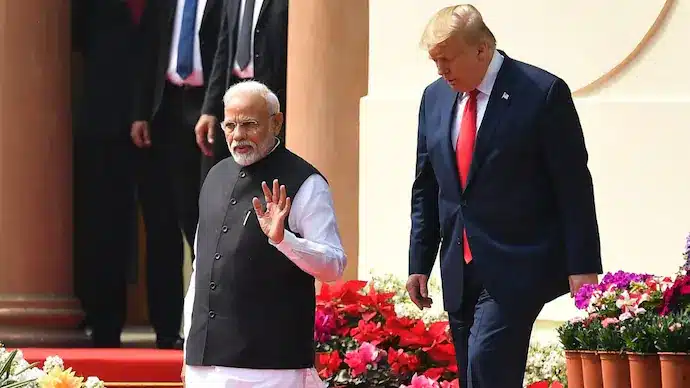Modi Asserts India’s Stance Against Third-Party Mediation in Talks with Trump

Indian Prime Minister Narendra Modi has firmly reiterated that India will not accept any third-party mediation regarding the Kashmir issue with Pakistan. This assertion was made during a recent phone call with U.S. President Donald Trump, as conveyed by India’s Foreign Secretary Vikram Misri. The conversation comes amidst ongoing tensions between the two nuclear-armed neighbors, following a series of military confrontations earlier this year.
India’s Stance on Kashmir Mediation
During the phone call, Modi emphasized India’s long-standing position against external involvement in Kashmir discussions. Foreign Secretary Misri stated that Modi “strongly” communicated this message to Trump. The Indian government has consistently maintained that any dialogue regarding Kashmir must occur directly between India and Pakistan, without any third-party interference. This stance has been a cornerstone of India’s foreign policy, particularly in light of the historical complexities surrounding the Kashmir region.
Trump has previously expressed his willingness to mediate between India and Pakistan, especially following a four-day military conflict in May. However, India has rejected these offers, insisting that any negotiations should be conducted bilaterally. Misri clarified that during the recent conflict, discussions regarding military actions were held directly between the two nations, without U.S. involvement. This assertion contradicts Trump’s claims that the U.S. played a role in brokering a ceasefire.
Recent Military Tensions
The situation in Kashmir has escalated significantly in recent months. Tensions surged after a deadly attack on tourists in Indian-administered Kashmir in April, which resulted in the deaths of 26 individuals. India accused Pakistan of orchestrating the attack, a claim that Islamabad has denied. Following this incident, India conducted airstrikes targeting what it described as terrorist infrastructure within Pakistan, leading to intense military exchanges between the two countries.
In the wake of these confrontations, Trump announced a ceasefire agreement on May 10, claiming that both nations had agreed to halt hostilities with U.S. mediation. However, India has consistently refuted any assertion that the U.S. facilitated this agreement. Misri reiterated that the cessation of military actions was negotiated directly between Indian and Pakistani military officials.
Trade Negotiations Amidst Diplomatic Strain
As diplomatic tensions rise, India is also focused on negotiating a trade deal with the Trump administration. The Indian government is eager to finalize an agreement before a 90-day pause on higher tariffs expires on July 9. Modi’s administration is keen to strengthen economic ties with the U.S., even as discussions about Kashmir remain contentious.
Trump has previously linked trade negotiations to the cessation of hostilities between India and Pakistan, suggesting that economic incentives could encourage both nations to resolve their differences. However, India’s refusal to accept third-party mediation complicates these discussions. The Indian government aims to maintain its position on Kashmir while pursuing beneficial trade relations with the U.S.
Implications for U.S.-India Relations
The ongoing dialogue between Modi and Trump highlights the delicate balance in U.S.-India relations, particularly concerning Kashmir. Analysts suggest that Trump’s public offers of mediation may challenge India’s diplomatic boundaries. Historically, India has sought to prevent Western nations from treating it and Pakistan as equals, emphasizing its unique position in the region.
Despite the discomfort these statements may cause in Indian diplomatic circles, it remains uncertain whether they will impact ongoing trade negotiations. As both nations navigate these complex issues, the focus will likely remain on maintaining a strategic partnership while addressing the sensitive topic of Kashmir.
Observer Voice is the one stop site for National, International news, Sports, Editor’s Choice, Art/culture contents, Quotes and much more. We also cover historical contents. Historical contents includes World History, Indian History, and what happened today. The website also covers Entertainment across the India and World.
Follow Us on Twitter, Instagram, Facebook, & LinkedIn

